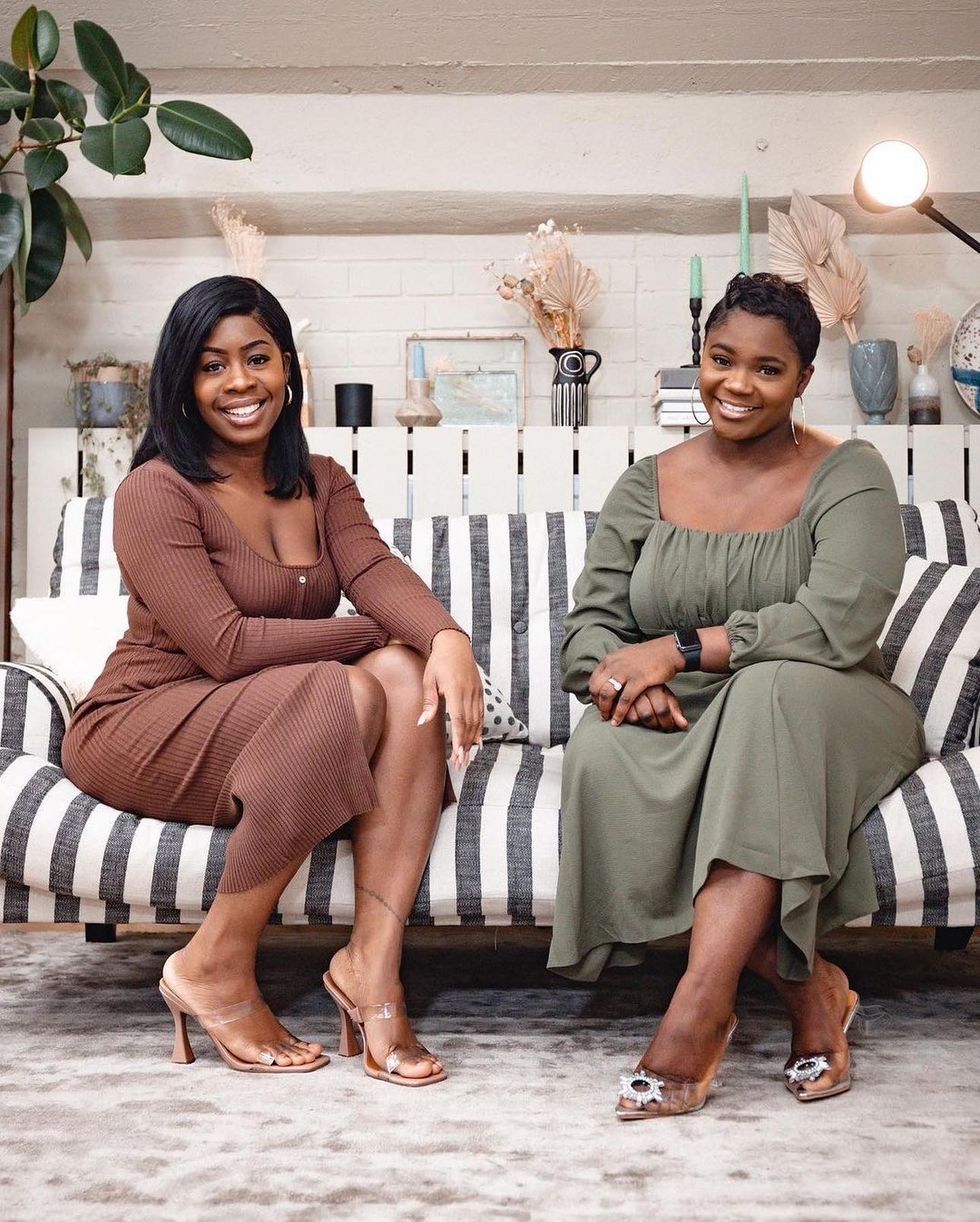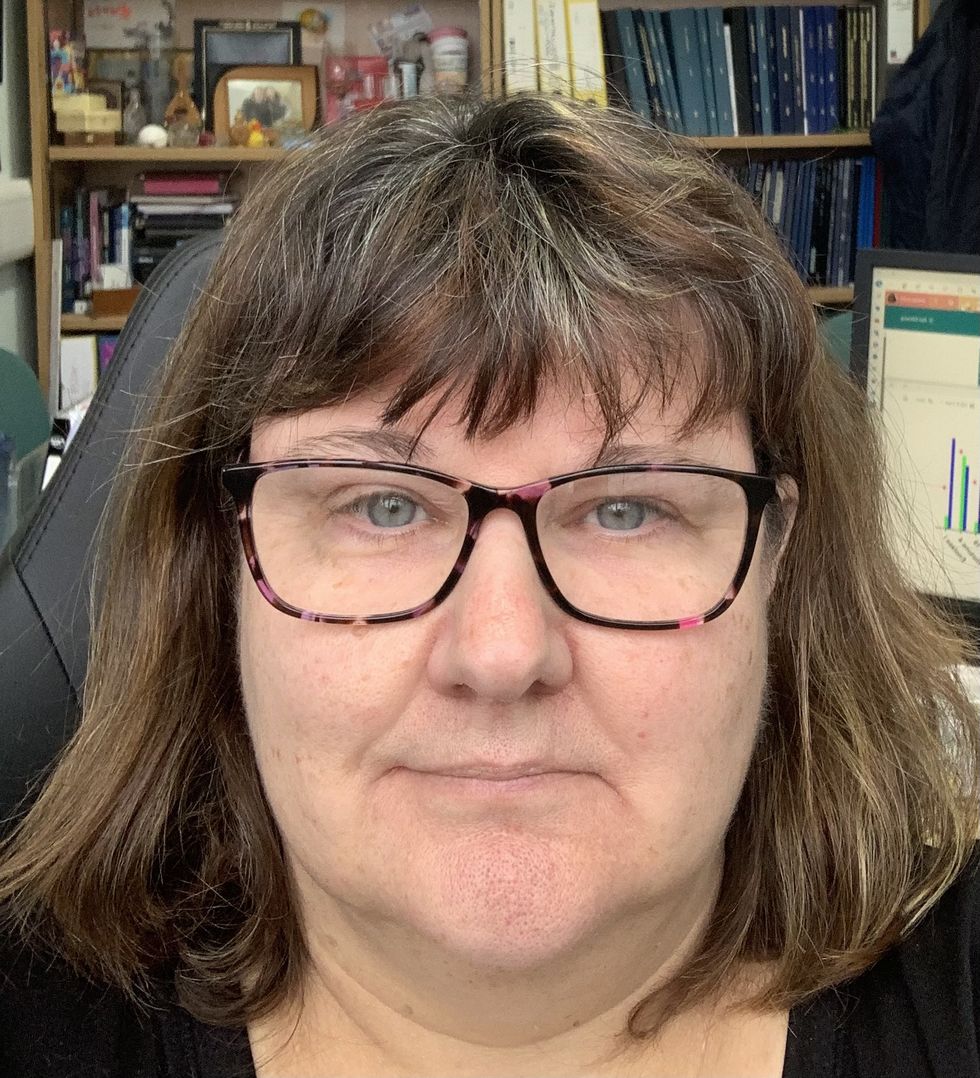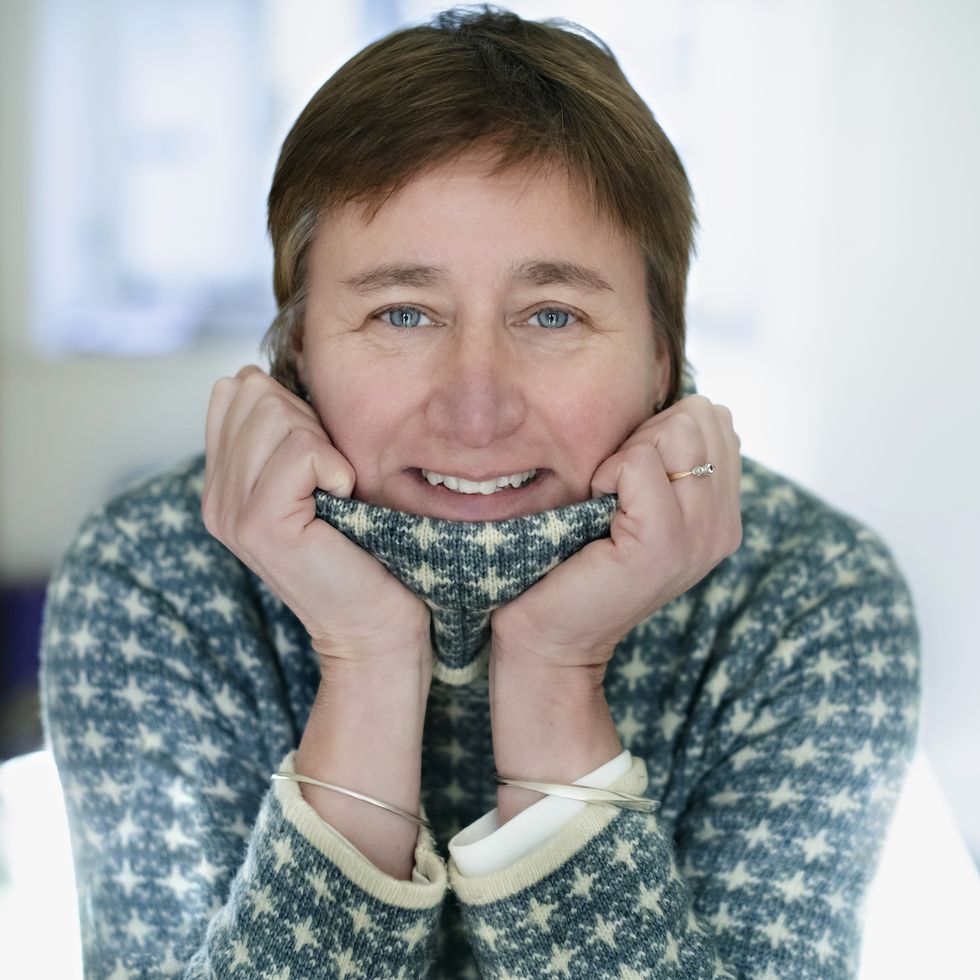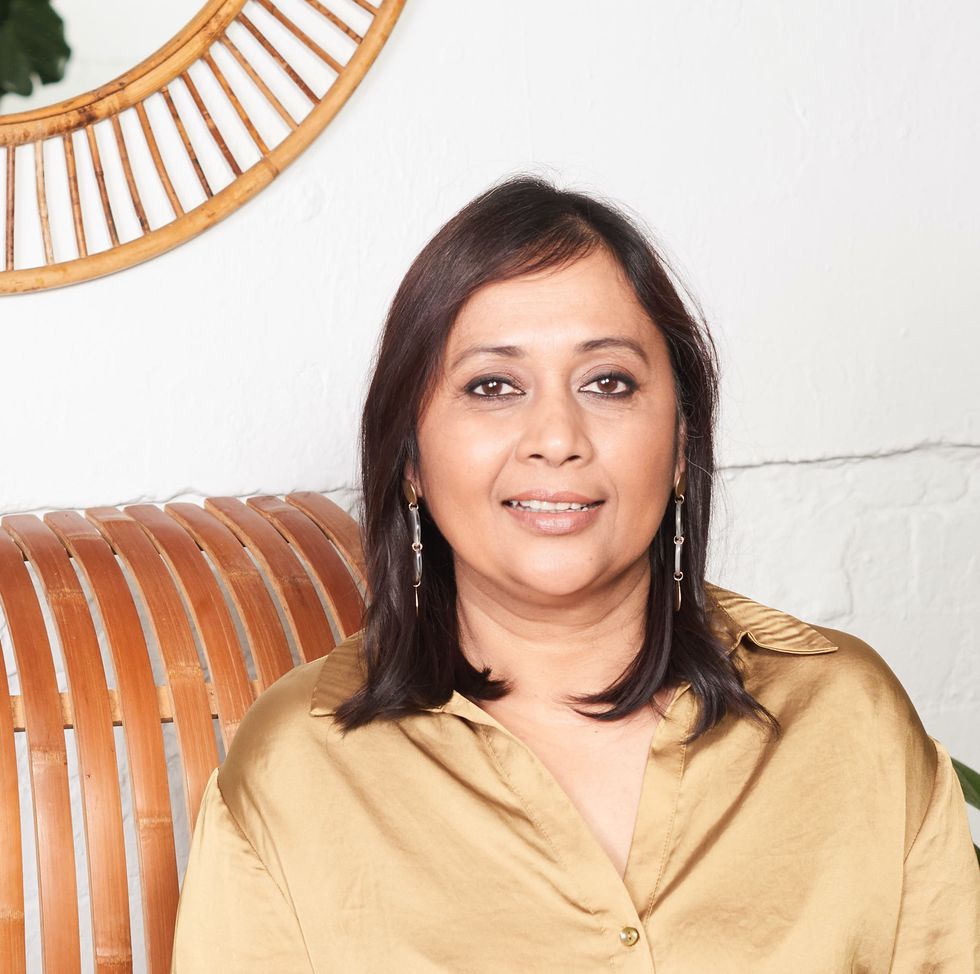Meet the women changing the face of female healthcare

[ad_1]
Happy International Women’s Day 2024. This year, Women’s Health is spotlighting the women committed to improving health outcomes for females across the UK, from working to help people get endometriosis diagnoses faster, to improving access to menopause support.
Here, they share their missions in their own words.
Tinuke Awe and Clotilde Abe, founders of FIVEXMORE
In the UK, Black women are more than four times more likely to die in pregnancy or childbirth than white women, according to the latest data (historically, this number was five times more). That’s an outrageous reality that Awe and Abe seek to address, through their work with FIVEXMORE.
What is your mission?
Five X More is committed to changing Black women and birthing people’s maternal health outcomes in the UK. It was initiated in 2019 when two mothers came together with the dream of improving maternal mortality rates and health care outcomes for Black women.
Which of your achievements are you most proud of, so far?
In the past few years we have put Black maternal health on the agenda in Parliament and in the mainstream press. We also train health professionals and provide free resources for women. In 2020, we started a petition that gained 187,000 signatures and led to Black maternal health being discussed in Parliament for the first time ever in its history, and in 2021 we created the Black Maternal health All Party Parliamentary Group.
What are your hopes for the future?
In the next few years we hope Five x More no longer exists. If that happens, it will be because the disparities in maternal health outcomes will have gone down and there will be better maternal outcomes for all women everywhere. But in order for this to be achieved, women’s voices and experiences must be heard.
Dr Sonia Adesara, campaigning GP
Adesara is a medical doctor working in the NHS, as well as a campaigner for progressive change, from working to halt the intervention of private companies in the health service to trying to extend the availability of free school meals. Her most recent work is with Doctors for Choice, a group of medical professionals seeking to extend abortion access rights in the UK and to fully decriminalise terminations.
What is your mission?
Doctors for Choice UK are a group of healthcare professionals and students who campaign for abortion rights.
Our goal is to achieve the full decriminalisation of abortion care across the UK, as we believe no woman should ever be criminalised for ending her pregnancy. We are advocating for comprehensive abortion care teaching as part of the core curriculum in all UK medical, nursing and midwifery schools. Through campaigning and education, we are working to destigmatise and normalise abortion for those accessing and those providing abortion care.
What are your proudest achievements so far?
Doctors for Choice UK was started by Dr Wendy Savage (our president ) in 1976. In recent years, Dr Jayne Kavanagh and Dr Hayley Webb have led the organisation, building a network of doctors, nurses, and healthcare students who feel passionate about improving abortion care. We organised multiple campaigns over the past few years, sometimes serious, sometimes fun (often a bit of both).
This year, we launched our campaign for decriminalisation. We organised a protest outside of the Old Bailey, projected messages about abortion in public places across London, and made videos to inform the public. And we made a Queen-rendition music video, directed and produced by our ridiculously talented media creator Dr Polly Cohen, a doctor who also directs plays and documentaries.
Working in coalition with other pro-choice organisations, we feel we’ve increased awareness of abortion laws amongst the public, and have also improved education of abortion within medical education.
What are your hopes for the future?
Our hope is abortion is fully decriminalised so that it can be regulated like other forms of healthcare, and we can centre abortion care on women’s needs rather than having to navigate care around outdated laws. We also hope to address the stigma around abortion. The reality is, one in three women will need an abortion. The stigma around abortion creates a silencing effect, where many women feel guilt or shame or feel unable to talk about it. This needs to change.
Dr Barbara Guinn, Biomedical Scientist
Endometriosis, thought to impact one in 10 women, has a notoriously long road to diagnosis, with an average wait of eight years for those experiencing symptoms, which can include debilitating period pain and issues with fertility.
Dr Guinn recently identified proteins which are higher in the urine of women suffering from the disease, paving the way for the development of a urine test which could let someone know in seconds if they have the condition. The test, called EndoTect, is currently in the process of being validated.
How did it feel to identify the proteins which mark the presence of endometriosis?
Endometriosis affects one in 10 women. It has devastating affects on normal life activities such as working and relationships, as well as affecting fertility in 30-50% of the people affected by endometriosis.
When we analysed the proteins we found they looked interesting and we had some excitement about the results. I do try not to get too excited as we still have to finish optimising the test and making sure it can not only detect deep endometriosis, but can also accurately show when patients do not have endometriosis.
What could this mean for those suffering with potential endometriosis?
The test we are in the process of validating, EndoTect, offers an opportunity to triage women into the correct care pathway. Once developed we hope that EndoTect will help get patients to the right treatment quickly. This will help with symptoms and long term impacts of endometriosis on health and wellbeing including mental health.
What are your hopes for the future, with this development?
Given that the wait times for patients to receive a diagnosis is around eight years, I would love it if patients could receive a diagnosis and feel validated in a much shorter time frame. If patients receive the correct treatment quickly, then the impacts of endometriosis on health, the NHS and the economy will all be lessened.
One of the big issues with endometriosis research has been a lack of funding. Most funding bodies support research into other diseases and some also fund some endometriosis research but we are competing for a relatively small pot of money in an increasingly difficult financial climate.
Diane Danzebrink, menopause expert
Cast your mind back a few years and you’ll recall that – prior to campaigning from the likes of Davina McCall – open conversations around the menopause were rare. That’s something Danzebrink has spent years seeking to change. She founded the national #MakeMenopauseMatter campaign and the not-for-profit Menopause Support, which offers support for individuals and awareness training for organisations.
What is your mission?
My mission is, and always has been, to ensure that everyone has the right information about menopause at the right time. This would allow those who will experience it directly to feel prepared, and make some informed decisions for themselves about how they manage the menopause transition. Those who will be indirectly affected will feel more able to offer understanding and support. Finally, everyone must be able to access the care and support that they deserve at the point of need.
What are your proudest achievements so far?
Supporting thousands of women and some of their partners and family members every year and successfully campaigning for menopause to be added to the RSE curriculum in schools in England and for all medical students to learn about menopause.
I was proud to publish a booklet titled ‘Understanding Menopause’ booklet which has now been added to the British Menopause Society and Women’s Health Concern websites and has enjoyed an incredible response from everyone including NHS GPs, Nurses and clinics.
What are your hopes for the future?
That the remaining aims of the #MakeMenopauseMatter campaign – mandatory menopause training for GPs and a nationally funded public health campaign for menopause – will be met. They are common sense, cost effective, measures that would positively impact the lives of millions and save the NHS a fortune.
That those who have the ability to change things for the better, at national level, will stop talking about it and get on and do it. We need menopause education for health care professionals and information for the public, worldwide. There is a lot of life to be lived post menopause but too many, around the world, continue to suffer in silence due to a lack of information and support. That must change. We must be the generation to #MakeMenopauseMatter.
Prof Pragya Agarwal, author of Hysterical: Exploding the Myth of Gendered Emotions
Prof Agarwal is a behaviour and data scientist by trade. She’s also the founder of research think-tank The 50 Percent Project, which investigates women’s status and rights around the world and the author of Hysterical: Exploding the Myth of Gendered Emotions.
What is your mission?
To make healthcare, especially access to reproductive healthcare, as inclusive as possible. My work is grounded in intersectionality as well as inter-disciplinarity and through my research, writings and talks I am focussed on the impact of healthcare biases on marginalised and minoritised women. There are power imbalances that impact reproductive rights and autonomy, for instance, and these imbalances impact those who are marginalised and minoritised much more.
Our choices are not distributed equally. Our choices are determined by who we are, where we live, and so on. Even equal legal rights do not mean that we all will have equal access to choices or freedom to make these choices.
My research also focusses on how gendering of emotions plays a role in the way women are under-diagnosed and not treated in a timely manner, the way the myths around ‘hysteria’ feed into the misdiagnosis (and dismissal) of women in the medical domain- often in an implicit manner. It is these implicit discriminations that I want to highlight, so deeply embedded in our medical training, practices, language.
What are your proudest achievements so far?
I would say the publication of my books SWAY, (M)otherhood and Hysterical and the response they have receive. This is down to the conversation they have started around the need to examine biases in healthcare, how gendered emotions impact medical misogyny and racism, and the need to examine current state of healthcare from an interdisciplinary perspective with an understanding of both history and science.
I am deeply proud of having spoken with policy-making organisations, medical professionals and health care services around the world, and whenever I see a flicker of acknowledgement of the biases built into our healthcare services, and the way women are disadvantaged and ignored and sometimes encounter hostility, I feel that we are just one tiny step closer to solving these problems. But often it feels that the work has just begun and so it is difficult to feel proud – yet.
What are your hopes for the future?
My hope is that through an open and honest conversation, we will shift individual and institutional biases, and we will make healthcare domains a safe place for women and others of marginalised identities. I want for women to have bodily autonomy and choices for their own lives and bodies, legally, socially and culturally.
So much of the biases and implicit assumptions that harm women are embedded in medical training itself, and these need to be examined closely and overturned where it all starts. Even biology textbooks in school are gendered and racialised; they are sometimes perpetuating deeply harmful eugenic theories around Black and brown bodies. I want more focus on how Black and brown women, disabled women, trans and non-binary people are discriminated against in many of our healthcare institutions.
I want the institutions to take responsibility and accountability – have clear procedures and policies that do so – rather than put the onus on women to champion for themselves- again these benefits certain women but disadvantages many who don’t have the necessary education or even the voice to do so. I want more women to be involved in policy-making; currently this is dominated by white middle-class men at the top leadership level. This will not solve everything, but it will shift some perceptions.
More on International Women’s Day 2024
[ad_2]
Source link





